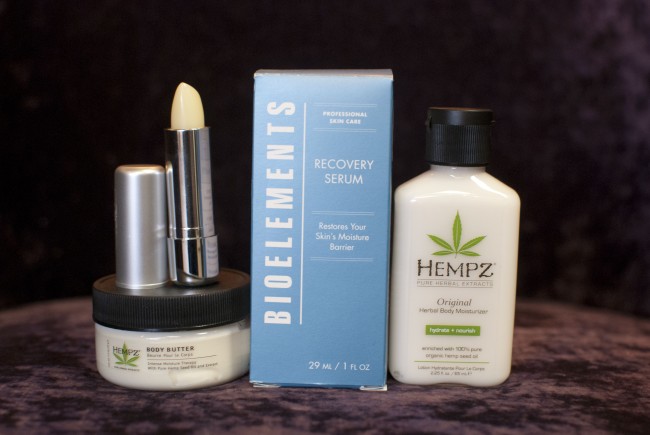It is the same old story every winter – cold temperatures, dry air and harsh winds. When dealt with over long periods of time, these factors can wreak havoc on the skin.
Skin dries out when oils are stripped from the surface. During the summer, our skin is nurtured by moisture in the air, vitamin D from sunlight and sufficient water consumption. In the winter, these aspects disappear when weather conditions change and people modify their lifestyles.
Keli Wollmer, physician assistant and clinic coordinator at the Marquette University Medical Clinic, sees students come in year-round with skin-related issues. Some of the most common occur during the winter months.
“Students seek care at the Marquette University Medical Clinic for various skin concerns, not only in the winter, but throughout the year,” Wollmer says. “In the winter we commonly see students for skin concerns including eczema, chapped lips and frostbite. When we do see frostbite it is typically on the hands or feet, occasionally the face.”
The weather in Milwaukee is a topic Marquette students joke about frequently. One day it could be 80 degrees and sunny while the following can bring temperatures in the 50s with scattered showers. It is during the winter months, though, that students routinely discuss the city’s climate. According to the Weather Center, Milwaukee experiences average temperatures ranging from lows in the teens to highs in the 30s from December to February. Factor in a frosty wind chill and those temperatures can plummet even further.
Megan Arriola, a junior in the College of Arts & Sciences, has experienced Midwest winter conditions her whole life and realized early on the significance of keeping her skin healthy.
“Growing up in Minnesota, where the weather gets colder than most of the states, I learned at an early age that it is important to protect your skin,” she says. “When it starts to transition to colder temperatures, applying a non-scented lotion in the morning and at night can keep your skin from drying out.”
Going to school in the Midwest, it can be difficult to keep a distance from the harsh conditions that winter can bring. But people do not need to be plagued by the dry, itchy and cracked skin that commonly occurs. A few simple solutions will help alleviate the frustration many experience:
Protect your skin. Make sure to cover your skin when going outside. Wear gloves, hats and scarves to protect your outermost layer from cold temperatures and harsh winds. To avoid irritation, stick to softer materials and avoid wool. Also, be sure to remove any wet clothing immediately as it is an irritant.
Moisturize. Applying an oil-based moisturizer will help revitalize skin. The oil will create a protective layer on the surface and trap nutrients. It also helps to apply moisturizer several times throughout the day, especially after washing your hands.
Wear sunscreen. Direct sunlight and the glare from snow can still damage skin, even in the winter. Put sunscreen on exposed areas before going out to ensure that your skin does not get burnt.
Shorten showers. Taking long, hot showers strips the skin of the protective oil layer that keeps moisture in. Instead of risking this protective layer, turn the knob down to warm and lessen your shower time.
Use a humidifier. Heating and cooling units dry air inside buildings. Placing a humidifier or bowl of water in rooms adds moisture to the surrounding area. An immediate change will not be seen, but over time the skin will absorb moisture and restore dry skin.
Seek a specialist. If none of these remedies are working for you throughout the winter, seek a dermatologist for help. They have the ability to analyze your skin type and recommend the best products to resolve the problem.
Skin care is a topic College of Health Sciences senior Princess Graff knows all too well. As an avid beauty product user, she realizes the importance of healthy skin.
“I am big on Clinique, and it is the only type of product I use. Because they have such a huge variety I don’t feel limited,” Graff says. “My mom got me started with it when I was young, and it’s safe to say I’m in love.”
Dry, irritated and cracked skin does not need to be a nuisance during the winter. Keeping up with a daily skin care regimen can prevent you from suffering all season long. You won’t see an immediate improvement, but over time the skin will absorb nutrients and be revitalized. It is important to remember, too, that caring for your skin goes beyond physical appearance. Your skin has a direct impact on your health as a whole.
“It is important to take care of your skin because it serves as a protective barrier, it helps regulate body temperature and acts as a filter,” Wollmer says. “Healthy skin heals faster and can help in disease prevention.”















Victor Jacobo • Jan 23, 2014 at 8:02 pm
These are great tips!